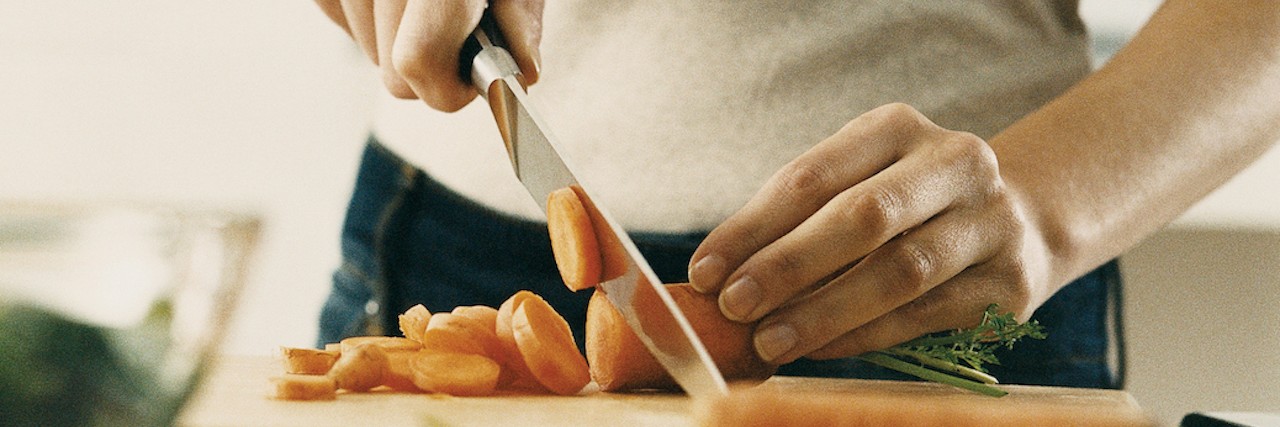I’ve been struck recently by the proliferation of #eatclean and associated hashtags on social media. I admit, it angers me. It might do a good job of masquerading as health, but really, if you can’t sit down and eat with friends and family, I question how healthy your lifestyle is.
You might ask why it bothers me so much. Why don’t I just unfollow these people, ignore it, live and let live. Well, if you choose an extremely healthy diet because it is a true health decision or a moral choice, not driven by societal pressure or inner guilt or compulsion, fine. However, for many with active eating disorders or who are in recovery, the clean eating movement offers the perfect (often subconscious) mask to continue with disordered behavior and avoid challenging fears around food. In short, “eating clean” allows you to convince yourself and the world you are healthy or getting better while remaining tied to your eating disorder.
You continue to appease the critical voice by only eating a select group of foods or follow specific nutritional requirements. You still can’t eat with others because your restricted diet (now based on pseudo-health claims) doesn’t allow it. You may even be a healthier weight. However, if you’re still so utterly terrified of “bad” fats, sugar, refined carbs or you can’t eat a piece of birthday cake, then whatever reasons you give for that choice cannot be emotionally healthy.
It is incredibly easy for those of us who have a tendency toward black and white thinking, rigid behavior aimed at gaining a sense of control or who are plagued by a general sense of guilt or uncertainty, to fall into this trap. It also feeds the competitive mindset, which is so common in eating disorders. I’m not immune from this. If I were, then perhaps I wouldn’t care so much, but it pushes my buttons. I feel guilty I’m not buying into the clean eating trend, even though I see it is as similar to an eating disorder.
Veganism, too, is a lifestyle choice I am often tempted to move closer toward. I can see the moral arguments here. I get it. Would it be healthy for me emotionally? Definitely not. I know myself well enough to know that for me, it would be a dangerous move. The thing that concerns me is how a black and white, restrictive mindset has increasingly seeped into popular culture. The line between an eating disorder and so called “healthy” eating is becoming terrifyingly blurred. I think it probably indicates a bigger, social problem, but that’s a topic for another post.
I’m not against healthy food at all. I love colorful veggies and whole-grains as much as the next person, but absolute rules are not helpful. We might not like the “food is fuel” analogy, but it is true. I might have turned up my nose at the idea when a dietitian first suggested it, and I still don’t emotionally believe it or always apply it to myself, but there really are no good and bad foods.
Eating is an important social activity. I wouldn’t judge someone for enjoying a croissant for breakfast once in awhile or for eating chocolates and ice cream. It is nice to be able to join in a summer barbecue or drink mulled wine at Christmas. To me, recovery and health are about no longer being afraid of food. It is making choices based on what our bodies need nutritionally and maybe even just what we fancy.
So before you pat someone on the back for their green smoothie, think again.
The Mighty is asking its readers the following: What’s one secret about you or your loved one’s disability and/or disease that no one talks about? Check out our Submit a Story page for more about our submission guidelines.

